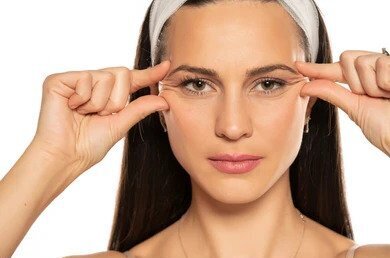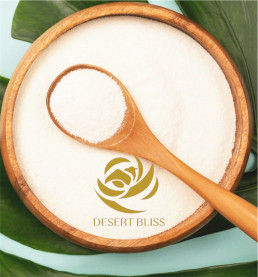Plant-based collagen alternatives
Novel extraction technology could help tap growing consumer demand for effective and functional plant-based collagen alternatives, says Korean startup Rawga.
Anthony Fletcher, Freelance Journalist
September 16, 2024
The growing popularity of collagen supplements – taken for skin, joint, and general health – was in evidence at Vitafoods Europe in May.
A key appeal lies in the fact that collagen is a natural, functional ingredient, offering a range of benefits – but it is not without its drawbacks.
“Some 99.9% of the collagen market is animal-based,” said Raw Kim, CEO of Rawga. “Consumers have pain points when it comes to animal collagen in terms of safety concerns, fishy taste, synthetic additives, and environmental impact.”
The company believes that consumers are increasingly looking for alternatives to animal collagen to improve their personal health, deliver better taste, and protect the environment.
Rawga claims to extract collagen from plant cell walls
To address this need, Rawga developed a technology that it says can extract collagen from the outer cell wall of plants.
“We hydrolyse plants to extract the extensins, or glycoproteins, of the plant's outer cell wall,” explained Kim. “Our technology is able to extract these as the smallest units of collagen – dipeptide and tripeptide structures – rather than just simple plant-derived free amino acids.”
Kim said the next step would be to find a plant rich enough in collagen amino acid composition. Unfortunately for his team, the ideal plant identified – hibiscus – does not grow easily in Korea.
The company therefore had to take the audacious step of establishing a farm in Laos, where hibiscus grows well. The entire industrial process was then vertically integrated, with the aim of bringing a plant-based collagen alternative to market.
“All this required a great deal of time and a lot of capital,” said Kim.
Collagenogenic – or collagen-boosting – properties
The success of this initial work means that Rawga is now well placed to tap into demand for plant-based collagen alternatives.
“[It] has the same collagenogenic matrix as common animal collagen, which means that the body produces collagen from it,” said Kim.
“It doesn't have the unpleasant taste that animal collagen can have, so there's no need for synthetic additives to mask them. We also believe that it is safer, because it is made from organic hibiscus. It contains antioxidants (polyphenols and flavonoids), which are inherent in plants.”
Kim believes this product offers more functionality than many current plant-based products, which simply contain single amino acids derived from plants.
He added: “We felt that we were really able to stand out from companies that are simply blending single amino acids.”
Expansion of plant-based collagen alternatives
The company has carried out in vivo and in vitro studies to confirm the role that collagen plays in maintaining health.
“We’re currently working on clinical trials to add credibility to the [ingredient’s] effectiveness, which will help us expand globally,” said Kim. “Collagen is a universal ingredient that is consumed globally.”
Rawga was the first Korean company to be selected for the Most Innovative Nutraceutical Ingredient category at this year’s Vitafoods Startup Innovation Challenge. This enabled the company to showcase its innovation to global buyers, and the experience of Vitafoods was a highly positive one, the CEO added.
“Participating in this event really gave us confidence in the expansion of plant-based collagen,” said Kim. “We were able to meet with global collagen companies, and I am convinced there is a huge market for innovation here.
HOW COLLAGEN LOSS AFFECTS SKIN
Did you know that collagen loss is one of the main causes of skin aging? As we age, our bodies produce less and less collagen, which can lead to a variety of issues inside and out. Collagen is the foundation of our entire body and among other things, without it our skin ripples, wrinkles, and sags. This “beauty protein” keeps your skin looking firm and smooth, but as you lose it, your skin starts to sag and look older.
In this post, we'll take a closer look at how collagen loss affects the skin and what you can do to address it.
1. What Collagen Is And What It Does For Your Skin
Collagen is the substance that holds us together and is the most abundant protein in the entire body. Making up nearly 90% of the collagen in our body, is Type I collagen — this type is found in our skin and is responsible for youthful-looking skin.
Collagen keeps your skin looking firm and smooth and visible signs of a healthy collagen supply include smooth, supple, and elastic skin which holds its integrity and bounces back quickly.
Put Your Collagen To The Test: ‘The Snap Test’

This quick self-test will help determine how resilient your skin elasticity is. Here’s how:
1 - Very gently, using your forefinger and thumb, gently pinch your under-eye skin and release without tugging.
2 - If the skin returns back to normal quickly, this indicates good elasticity and collagen in the skin.
3 - But, if it doesn’t snap back quickly to the original shape, this is an indicator of low skin elasticity and collagen loss.
2. The Causes Of Collagen Loss
Without even thinking about it our body produces a vital beauty protein, collagen. That is, until we hit 30. By the time we hit 30 years of age, our collagen starts to take a massive drop by 1-2% every year.
If you’ve hit this milestone, you’ve noticed that your skin doesn’t bounce back like it used to, that you see more lines and creases from daily activities like sleeping, talking on the phone, and working.
Unfortunately, it’s not just your habits that are causing these wrinkles. There are unavoidable factors at play against collagen and we experience many (or all) of them every day:
- Sunlight
- Smoking
- Pollution
- Diets high in sugar
- Age
Exposure to these puts you on the fast-track to collagen loss. This is when collagen supplements come in to help restore this essential protein in your body.
Not all collagen is made equal, however. Your body needs high-quality collagen that contains the amino acids needed to make new proteins. But the good news is that if you understand how to rejuvenate and maintain the collagen in your body, you have a real fighting chance to maintain radiance!
3. The Effects Of Collagen Loss On The Appearance Of Your Skin
Loss of collagen is a natural process that happens as we age. This can cause our skin to become thin and less elastic. As a result, skin may start to sag, wrinkle, and look drier. You might notice a lack of natural fullness, or your skin looking thinner than it used to.
We all experience the effects of aging on our skin. As collagen becomes less abundant with age, we may find that skin starts to thin and become more elastic in nature; this leads many people towards drier complexions because there's not enough material for sebum production (a natural oil) or other factors which can lead toward saggy jowls, wrinkling etc..
But don't worry! You're certainly not alone when struggling through these changes — I've got some tips later down below about how you too could look better sooner rather than later without any painful procedures whatsoever.
4. How To Prevent Collagen Loss And Maintain Healthy Skin
Collagen is the most essential protein for your skin’s integrity and longevity. Thankfully, preventing collagen loss is simple.
It’s important to know how to rejuvenate this vital protein. If you’re over 30 or experiencing the signs of extreme collagen loss, your best approach to collagen restoration is multi-dimensional.
A Multi-Dimensional Approach To Collagen Loss
Stimulation: Face Yoga Just helps deliver vital nutrients to your skin and promote collagen and elastin production.
Internal: Diet and Nutrition
To produce collagen your body needs these essential vitamins and minerals:
- Proline
- Glycine
- Vitamin C
- Zinc
- Copper
If you notice, all these are found in food. Collagen can be restored with a well-balanced diet, but because it’s very rare in our modern world for someone to get all of their nutrients from food, collagen supplements are necessary.
In addition, collagen supplements are already broken down which is why supplements are actually more efficiently absorbed than the collagen found in food.
5. The Benefits Of Using Collagen Supplements
Think of collagen as a part of your skin care ritual. Integrate it into your Face Yoga Practice, combine it with your high-quality skin care, and let it be a part of your routine and your self-care!
Caring for you and your skin, starts with proper nutrients. Your body needs to be replenished on the inside in order to radiate on the outside.
Our Cosmetics with camel milk collagen and Hyaluronic Acid offer mega-hydration at a cellular level helping give you a radiant look of lit-from-within skin. Our unique blend of all-natural ingredients go beyond the ordinary cosmetic Ingredients and has been custom blended for:
- Diminish the look of wrinkles
- Age spots and hyperpigmentation
- Fine lines
- Scars and stretch marks
- Oily skin
- Some types of rosacea
- Large pores
If you’re ready to see big changes in your skin and wrinkles, it’s critical you start supplementing your collagen production. Results can be seen in as little as a couple of days and the best results come over time.
But we didn’t stop there.
Nine All-Natural Skin-Loving Super Ingredients
Clean, all-natural ingredients that deliver safe, hydrating, full-body and skin support
A unique blend of all-natural ingredients go beyond the ordinary support the skin in :
- Hyperpigmentation
- Wrinkles
- Dull skin
- Acne-prone skin
- Dry skin
- Sagging skin
Here are The super Ingredients supporting your body and skin from the inside out

White Mulberry Leaf Powder is incredibly rare, but so beneficial. We love this ingredient for its ability to visibly repair and reduce hyperpigmentation, lighten dark age spots, and for creating a flawlessly glowing complexion!
Apple Peel Powder is an all-natural anti-oxidant, super-ingredient which supports your skin and body’s fight against free-radicals. A must have for all skin types!

Cloves have been shown to have antimicrobial properties, meaning they can help stop the growth of microorganisms like bacteria and the compounds in cloves have been shown to help preserve bone mass. ~ Great for acne prone skin, and boosting strong bones.*
Maca is a fantastic herb for supporting your skin through the aging process. Studies are proving that the antioxidants in maca might help protect skin from UV damage and oxidative stress.
Ginger Root Powder
Soothes irritated skin, redness, and is great for calming the gut.
Ceylon Cinnamon
This potrent and truest form of cinnamon contains fantastic antioxidant, anti-inflammatory, and anti-bacterial properties. This makes Ceylon cinnamon wonderful for helping acne-prone skin!
Cardamom
Like cinnamon, cardamom heals breakouts of the skin from the inside out! This spice also acts as a skin purifier by clearing blemishes, improving complexion, and creating an even skin tone.
Calcium
Calcium is gaining in popularity for glowing skin, but we also love it because it helps regulate sebum production and keep your skin hydrated and eczema-free year round!
Iron
Iron helps skin tissue repair and also supports the synthesis of collagen in the body. Iron is found in mulberry leaf, maca root powder, and ginger root.
Magnesium
Magnesium is great for aging bodies because it naturally stabilizes stress and hormonal imbalances and lowers cortisol levels. These qualities help improve sleep, which is key to healthy and radiant skin!
The recipes with these ingredients can:
- Boost antioxidants
- Reduce inflammation of acne and breakouts
- Hydrate the skin on a cellular level for a smoother complexion
- Supplement collagen production to reduce sagging skin
- Fortify your skin with protective and nutritive vitamins and minerals

